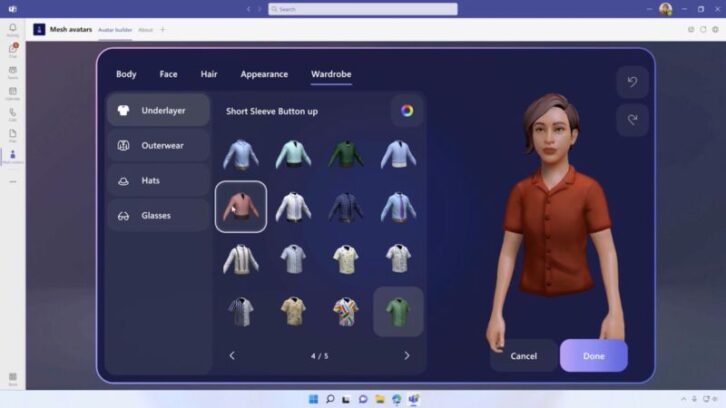
For those who wish to participate in video calls without being on camera, Microsoft has already added customizable 3D avatars to Teams. The company isn’t stopping there, however. VASA-1 is a newly announced feature that Microsoft is working on which leverages an AI model to scan a single photo of a person, along with a clip of their speech, to generate a realistic talking avatar that resembles the users.
“Our premiere model, VASA-1, is capable of not only producing lip movements that are exquisitely synchronized with the audio, but also capturing a large spectrum of facial nuances and natural head motions that contribute to the perception of authenticity and liveliness,” says Microsoft. “Our method not only delivers high video quality with realistic facial and head dynamics but also supports the online generation of 512×512 videos at up to 40 FPS with negligible starting latency. It paves the way for real-time engagements with lifelike avatars that emulate human conversational behaviors.”
Examples of VASA-1 in motion can be viewed on Microsoft’s post. Note that all of the “people” used as examples aren’t real either, but are rather “non-existing identities generated by StyleGAN2 or DALL·E-3,” which is jarring in of itself.
The following was originally published March 16, 2023:

Those who wish to still feel connected during hybrid work meetings but find themselves in the position of not wishing to have their webcam turned on, Microsoft will soon be allowing you to compromise by displaying a customizable 3D avatar in Teams instead. These avatars were originally just one component of Microsoft’s Mesh initiative, which was announced in 2021 but has since been pushed back. According to Microsoft’s product roadmap, the 3D Teams avatars will be arriving in May.
See also: Microsoft forcing free Teams users to pay up or lose their data
When originally presented as part of the Mesh initiative, these Teams avatars featured customizable skin tones, hair colors and styles, body types, facial features, and more. Mesh was slated to be released in 2022, but Microsoft’s restructuring, along with the Metaverse’s disappointing reception, resulted in delays for the initiative. Back in 2021, Microsoft remarked that the end goal was to have the Teams avatars display their user’s facial expressions and gestures in real-time, though what level of functionality they will have on release remains to be seen.










